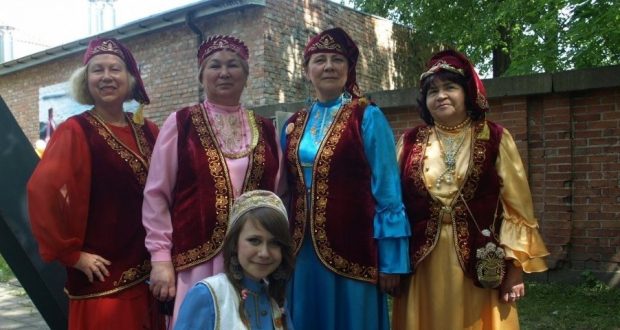This year on February 16, the 100th anniversary of the restoration of the Lithuanian state will be celebrated. In the festive events dedicated to this important event, state institutions, municipalities and ordinary residents of Lithuania, including local communities, are actively involved.
The Klaipeda Tatar community “NUR” headed by the chairman Ilfir Gibadullin also prepared a small project dedicated to this significant date.
According to the 2011 census, 2,700 Tatars live in Lithuania. The first Tatars appeared in Lithuania as allies of the Grand Duke of Lithuania Gediminas in the battles against the Crusaders in 1319.
The second wave of Tatars, whose descendants the Lithuanian Tatars consider themselves, came from the Golden Horde in 1396-1397 – then in the Grand Duchy of Lithuania there were 40 thousand Tatar warriors who were settled in the Lida Castle in the territory of present-day Belarus.
Tatars in Lithuania were initially considered as professional soldiers and were involved in military service, for which they received land awards.
The great Lithuanian prince Vytautas formed a kind of defensive belt from the Tatar settlements in the vicinity of the castles in Trakai, Vilno, Kovno, Leeds, Krevo, Novogrudok and Grodno. Tatar settlements here had a clearly defensive and strategic character and defended the boundaries of the principality from the Teutonic Order. In turn, the Lithuanian Tatars considered Vytautas their “white khan” and defender.
In addition to the fact that the Tatars were excellent warriors and constituted a significant part of the Lithuanian cavalry, they were also allowed to take administrative posts and participate in local gentry seims.
Living for several centuries in Lithuania, the Tatars quickly have assimilated with the local, mixed marriages, adopted the language and culture of the surrounding population, more and more different from their relatives in the Golden Horde.
However, the Tatars created their unique book tradition – these were manuscript books – kitabs, which described rituals, rituals, legends of the Tatar people.
We try not to forget our native language, our native history, folklore, national traditions and rituals, and, on the contrary, accumulate and study in the Tatar Sunday school “NUR”.
Pupils of our school, like all Lithuanians, are preparing for the holyday of the 100th anniversary of the restoration of independence. Children with pleasure listened to a conversation about the meaning of the Tatars in the life of Lithuanian society. They read the poems by the Lithuanian poet Alfonsas Jonas Navickas, who translated the verses of the people’s Tatar poet Gabdulla Tukai into the Lithuanian language. We learned and now sing the national anthem of Tatarstan “Ana tel ” in Tatar, Lithuanian and Russian. We are going to visit Trakai, a city connected with the history of the Tatar people.
The lyrics of the song “Lithuania dear, my homeland” by Jonas Maciulis Maironis are very dear to us, Tatars, whose second home became Lithuania.
https://www.obzor.lt

